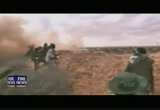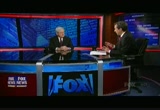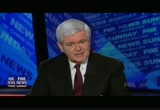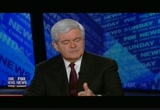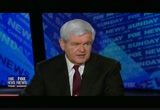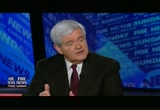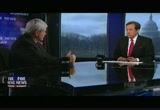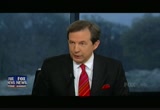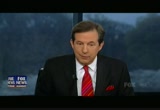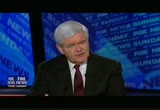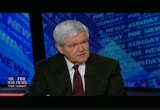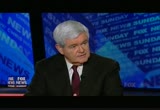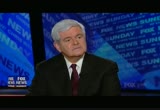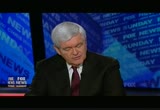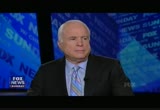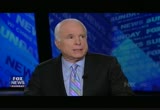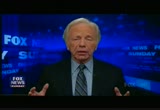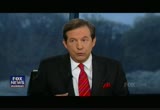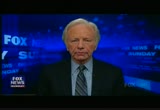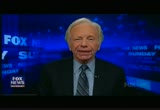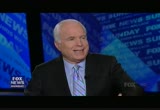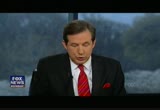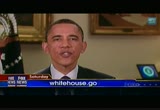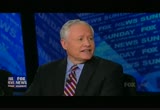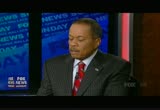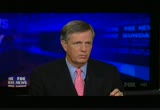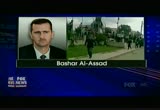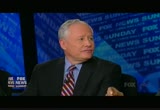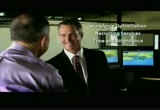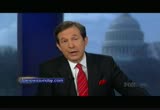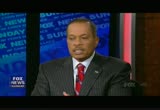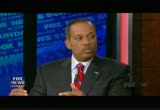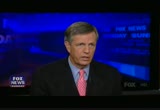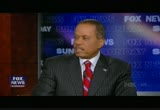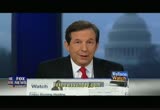tv FOX News Sunday With Chris Wallace FOX March 27, 2011 9:00am-10:00am PDT
9:00 am
i'm chris wallace, and this is "fox news sunday." the 2012 race for the white house. will one of the top republican contenders make a run for it? we talk policy and presidential politics with a g.o.p. big-thinker. former speaker of house newt gingrich. a "fox news sunday" exclusive. then, oil in the middle east. from syria, to libya and beyond. what should be the role of the u.s. military? we'll get an update from the region and talk with two of the senate's most influential voices on foreign policy. john mccain and joe
9:01 am
lieberman. and healthcare reform one year later. we'll ask our sunday group what is the long-term prognosis for the president's signature legislation? all right now on "fox news sunday." and hello again from fox news in washington. before we talk with our guests, we want to bring you the latest on events in the middle east. in syria, government soldiers have been deployed around the cities that have seen the biggest protests. in yemen, talks for a peaceful transfer of power failed saturday. now authorities worry about al-qaeda gaining strength in that country. and in libya, bombing by u.s. and allied planes has paved the way for rebel forces to retake the key oil town of brega. for more on libya, let's bring in fox news correspondent steve harrigan in tripoli. steve? >> reporter: chris, a rapid advance by the rebels, they are moving west quickly toward what they say is an eventual
9:02 am
battle right here in tripoli. they have taken the first key town of ajdabiya but they have gotten a lot of help from the allied airstrikes that targeted gaddafi tanks, rocket launchers, as well as artillery that has really paved the way for them to take the town of ajdabiya. but also more importantly, the resupply trucks from the government going down the long desert road they have been hit hard. so gaddafi forces without fuel, without ammunition they have had little choice but to retreat in the face of running out of supplies. they retreated also past brega. at times the gaddafi forces are also getting out of their military vehicles, getting in civilian cars to flee without being targeted. the next big test is likely to be gaddafi's hometown where his popular base is strong, as well as his military. if the rebels can take that, all bets are off. there could be a real battle here in the capital. as far as the gaddafi government goes, they are objecting, saying it's an outrage what is happening. they say the allied forces are taking sides in the civil war,
9:03 am
helping the rebels openly. going far beyond their u.n. mandate. in order to boost morale in the field, the gaddafi government has given promotions and pay raises to all officers in the fight. chris, back to you. >> chris: steve harrigan reporting from tripoli. steve, thanks for that. joining us now fresh off of a weekend visit to iowa, possible presidential candidate and former speaker of the house, newt gingrich. welcome back to "fox news sunday." >> good to be back here. >> chris: let's start with libya. you are taking some heat for what a lot of people are calling is a flip on what the u.s. should do in libya. let's watch what you said a few weeks ago about u.s. intervention and what you said this week about what the u.s. should do. here it is. >> exercise no-fly zone this evening, communicate to the libyan military that gaddafi was gone, and that the sooner they switch sides the more likely they were to survive. i would not have intervened. i think there are a lot of other ways to affect gaddafi. >> chris: some are saying
9:04 am
that whatever the president does or doesn't do, you're against. >> well, you should have played an earlier clip when i was on greta's show in late february and i said we should be for replacing gaddafi without using the u.s. military. now, the president on march 3 changed the rules of the game. the president came out publicly and said gaddafi must go. and so i was citing there my original position which is if you are not in the lake, don't jump in. once you're in the lake, swim like crazy. hour goal is not -- president said something and my goal means we should replace him and use western air forces and including other egyptian and moroccan and other advisors to help with the ground campaign. i see no reason for american ground troops to go in. the president positioned us where once the president of the united states says gaddafi must go, we have an obligation as a country to get rid of
9:05 am
him. >> chris: here is where i'm confused. greta's show march 7, the first clip you said to start the no-fly zone immediately. all she asked is what should we do about libya? you made no mention about what the president had said, you said we should have intervened -- let me finish and you can answer -- right away. even if all you were doing was being a good soldier why on earth would you say i wouldn't have intervened after the president committed u.s. service men and women this last week? >> because there is an earlier greta show in february which is where this all started. in february i said we should find ways to get rid of him using the kind of strategies that reagan and eisenhower used which was to help freedom fighters by using american force. that became impossible once the president publicly said gaddafi must go. so she said, this is march 7, four days after the president said gaddafi must go and my answer was the context of if gaddafi must go, you establish
9:06 am
the zone, but notice immediately after i said it, you take steps and you need to get rid of it. i'm against a no-fly zone if it's 90 or 120-day or six-month experience of the truce. the goal should be to get rid of gaddafi. that should be communicated publicly so gaddafi forces lose the morale. it should be unequivocal. you can't find any unequivocal statement anywhere that gaddafi must go. in fact the alliance is saying this is really humanitarian, it's really not directly, you know -- >> chris: okay. enough of the past. >> okay. >> chris: and the february greta show versus the march greta show. if you are president gingrich and speaking to the american people as president obama will be tomorrow night, first of all, would you say i want the tows be in control rather than cede control of the operation, the entire operation to nato? and secondly, you say gaddafi must go. as president, what would you be willing to do? >> i hope the president
9:07 am
tomorrow night will be dramatically clearer than he has been up till now. i hope the president will say, first he is consulting the u.s. congress, not just the arab league and united nations. i hope he will say second it's clear that the gaddafi dictatorship has to leave. and that we are prepared to do whatever it takes to make sure the gaddafi leadership should leave. >> chris: when you say "do whatever it takes" does that mean we should strike at gaddafi? >> yes. once you engage air power you should use air power in the most effective way. you don't need to send in ground forces. we have been supporting and sustaining egyptian, moroccan, jordanian forces for years. we should find allies who are prepared to go on the ground. you don't need much ground force if you have air power. but you need accuracy in the bombing campaign and you do need to be able to drive gaddafi forces to defeat. >> chris: but full-out, to defeat, topple gaddafi and his regime? >> otherwise the campaign makes no sense at all. if gaddafi is semi-in charge -- this is a ruthless
9:08 am
dictator with a powerful secret police. he will win a long-term stalemate. once you have the momentum -- the other point i'd make is american force has to be used as rapidly and as effectively as possible. you cannot sustain six-month, year or two-year campaign in libya. the president should call on the congress for supplemental. the word from the white house yesterday they would take it from the current pentagon budget i think is impossible. i don't think the pentagon can sustain a war within the current budget. >> chris: meantime, there are protests and violent government crackdowns across the middle east in syria, yemen and bahrain. what should the u.s. do in those countries and does it matt they're syria is an adversary and other two are allies? >> i think as a general principle we want to be in favor of people being in charge of their own lives. that has complication in some part of the muslim world because you have al-qaeda and
9:09 am
extremists groups. so it's not a simple thing in general, we should be in favor of moving toward freedom and moving toward self-government. again, this is part of why i was very cautious back in february. i don't think you want the u.s. and syria and the u.s. and bahrain and the u.s. in yes -- u.s. in yemen. this will unfold in complicated ways and we don't have the resources or wisdom to get in every place that has a problem. >> chris: let's talk about 2012. forgive me, you have been playing hamlet for several months now about whether or not you're going to run for the white house next year. are you running for president? >> i think within a month we'll have that taken care of. we'll determine. we're not yet running. we are looking at it carefully. a variety of reasons to do it in a methodical way. we're assembling a very good team. i have recently been in south carolina, new hampshire, iowa, the places you need to go. as well as texas and florida and north carolina.
9:10 am
and the water is pretty warm. my hope is that within a month we'll be running rapidly. >> chris: you said, "in a month we'll be running." >> i hope in a month we'll make that decision. we're finishing up the exploratory phase and we have specific things we're getting done we need to do before making a final decision. >> chris: do you intend to run for president? >> it's my hope it will work out an i'll be able to run. >> chris: the fact is you just hired rick perry, the governor of texas' campaign manager who will play a big role in a gingrich campaign. why wouldn't you run? >> there are things we're getting done with the private activity and -- >> chris: you're saying it's logistics. >> we sadly live in a world lawyers define an amazing number of things. federal election committee has different rules about different stages so to some
9:11 am
extent we're over-lawyered because it's requirement, objective of reality. i was delighted that rob johnson agreed to join us as senior advisor in the exploratory process. he ran a great campaign for rick perry and he understands texas politics very, very thoroughly, earlier running the lieutenant governor's race. he brings a level of talent to fbiing up the exploratory process that -- finishing up the exploratory process that's formidable. >> chris: you wouldn't have hired him if you weren't running for president. >> this is a serous exploration and we have prominent people. dave carney in new hampshire is helping. >> chris: the rap on gingrich geng -- the look on your face -- is you're brilliant. you're brimming with ideas. but you lack discipline. discipline -- you have heard this. and discipline is vital in a presidential campaign. i want to talk about your personal life. i hate doing it. but you know it will be an
9:12 am
issue in the campaign. >> sure. >> chris: so i'm going to go there. you were asked recently about the fact that you cheated on your first and your second wives. here is how you responded. >> there is no question that at times in my life partially driven by how passionately i felt about this country that i worked far too hard and things happened in my life that were not appropriate. >> chris: speaker, you've had more than a decade to come up with an answer. in all honesty, there were a lot of people who thought that answer was kind of lame. i know it's heart-felt. but let me explain why. you love your country and you're working hard. so you strayed. that wouldn't work with my wife. >> no, it didn't work in my life. i went on to say that i had to seek god's forgiveness and i had to seek reconciliation and i had to believe that being genuinely repen tent mattered -- repentant
9:13 am
mattered. we have a great marriage and wonderful children and grandchildren. have i matureed? am i a person that they can trust and rely on as a leader? and discipline is part of it. that's a legitimate question. i expect the american people in the end will be remarkably fair, render judgment and decide whether or not newt gingrich is somebody they think can solve the country's problems and be the kind of leader they want for this country. >> chris: there is something else that bothers people. you were leading the charge to push bill clinton from office for lying about an affair and yes, he lied in a court proceeding, in a deposition, where he was sworn to tell the truth, whole truth, nothing but the truth. at the same time, you were leading that charge, you were having an affair. isn't that hypocrisy? >> no. look, obviously it's complex and obviously i wasn't doing things to be proud of. on the other hand, what i said clearly -- i knew this in part
9:14 am
going through a divorce. i had been in depositions. i had been in situations where you had to swear to tell the truth. i understood that in a federal court, in a case in front of a federal judge, to commit a felony, which is what he did, perjury was a felony. the question i raise was simple: should a president of the united states be above the law? i don't think the presidency could be above the law. it's not personal behavior or what he did in the oval office. you can condemn that and say it's inappropriate. but there is a deeper and profound thing, does the president of the united states have to obey law. as long as he or she is popular, can they flout the law and become a third world country where the leader gets away with anything they want to, but you and i obey the law? i thought the notion -- i don't know what you would have had me do. i think the notion that the
9:15 am
president of the united states committing perjury -- he is a lawyer. this is not an accidental thing. i thought the outcome was about right. the house indicted, in effect indicted him. that's what impeachment is. >> chris: i'll ask you man-to-man. did you think to yourself i'm living in a really glass house? >> yes. >> chris: maybe i shouldn't be throwing stones? >> no. i thought to myself if i cannot do what i have to do as a public leader, i would have resigned. i think you have to look at whether or not people have to be perfect in order to be leaders. i don't think i'm perfect. i admitted i had problems and sought forgiveness, but i also think over time if you look at my total record i'm a pretty effective leader. i fight for this country and i fight for the changes we need with tenacity and i take a fairly tough beating, including from you and others in order to stand in the arena
9:16 am
and stand up for what i believe is really important. i think this country is worth that kind of a fight. we'll find out six months or a year from now whether people are forgiving and whether put in context events that are 15 and 10 years old. we'll see. >> chris: thank you for being so forth right and answering that. i want to ask you one more thing. we only have about a minute left. you say congressional republicans should take a hard line on government spending and all funding for obamacare this year. would you let the government shut down? would you refuse to increase the debt limit in order to push those two objectives? >> i would try to create a circumstance where the president had a choice. and the president either had to agree to some very substantial changes, or the president would have to bear a fair amount of responsibility. i think people in the city must understand the 1995 shutdown. republicans came out of that
9:17 am
and for the first time since 1928 were re-elected. we stood for something. we stood for balancing the budget, reforming welfare and cutting taxes. all i say to republicans today you bet every figure out what you're prepared to do so people believe you are serious or you will end up caving to whatever obama wants. that would be a disaster. >> chris: a government shutdown and refusing the debt limit you'd go to both? >> if the choice is cave in to obama and allow obama to dictate the terms gor to the country and say this is how serious this is, they are far better off to go to the country and draw a sharp line. if they cave to obama, they lose all their credibility to the country. >> chris: speaker gingrich, i want to thank you so much for coming in. >> thank you. >> chris: and being so straightforward with us. thank you, sir. >> thank you. >> chris: of course, we wanted to get the white house view on libya. however, they chose to offer secretary of state clinton and secretary gates to cbs, nbc
9:18 am
and not to fox. despite the fact we routinely have more viewers than two of the sunday shows the obama team felt no need to explain to millions of you who watch this program and fox news why they have sent u.s. service men and women into combat. we thought you'd like to know. up next, we will hear from senators john mccain and joe lieberman on libya, syria, and the growing unrest in the middle east. impact wool exports from new zealand,
9:19 am
textile production in spain, and the use of medical technology in the u.s.? at t. rowe price, we understand the connections of a complex, global economy. it's just one reason over 80% of our mutual funds beat their 10-year lipper average. t. rowe price. invest with confidence. request a prospectus or summary prospectus with investment information, risks, fees and expenses to read and consider carefully before investing.
9:21 am
two of the senate leading authorities on foreign and defense policy. senator john mccain and in west palm beach senator joe lieberman. let's start with what secretary gates said on one of the other sunday shows, senator mccain. he says that he doesn't think that libya is a vital interest for the united states, but that we have a vital interest in that part of the world. would you be sending american service men and women in to harm's way for something that was not a vital interest to the country? >> no, but obviously we could gible over what the definition of "vital interests" are. we said that we'd never again after rwanda, never again, after the holocaust never again. gaddafi forces were on the outskirts of benghazi and he said himself he would go house-to-house and kill and murder people. thank god at the 11th hour, with the no-fly zone, the quote, "no-fly zone" we
9:22 am
prevented that from happening. now clearly the momentum has shifted dramatically and the initiative are in the hands, the second aspect of it, of course, is that if you had allowed gaddafi to do that, as soon as the signal to the other leader in the middle east and dictators it's okay to massacre your own people to stay in power. finally, well, this is a moment of historic proportions. and this will give us a golden opportunity to help with democracy and freedom throughout the arab world. >> chris: senator lieberman, what should president obama tell the american people tomorrow night? >> well, i think president obama should begin in exactly the terms that john mccain just described. explain why we are there and why it's vitally important that the united states is part of an international coalition of libya. there are two reasons. one is that we are there to avert the humanitarian
9:23 am
disaster. the fact is that if the coalition forces had not gone into libya about a week ago, we'd be on the sunday show the morning, crying over a humanitarian disaster in benghazi, a slaughter of thousands of people. we would be asking why didn't obama do something? why did the world stand by? instead today we averted that. longer term, what is happening now in the middle east is remarkable. we have for too long defined the choices in the arab world between secular dictators and radical islamist dictators. now the people of the arab world say no, we want another choice. we want democracy. we want freedom and economic opportunity. these revolutions, tunisia and egypt and the one that started peacefully in libya are the most profound repudiation of
9:24 am
iran and represent the security in the world today and therefore we're -- >> chris: right. >> in going to libya, we are saying we are with the arab and we want to keep it going and not let the brutal dictators respond -- >> chris: let's get to some of the nuts and bolts questions, however. senator mccain, nato has taken command of all aspects of the libyan operation, no-fly zone and the civilian protection. given the fact that the u.s. is already tied down in two wars in muslim countries in iraq and afghanistan, is president obama right or wrong to turn over so much of the control of the operation to nato? to arab countries and european countries? >> as long as the united states does what it always does and we actually lean, the assets, many of the assets that are there are uniquely held by the united states of america. can i repeat again what joe is saying. this really should be the focus of our attention right now. some compare it to the follow
9:25 am
of the ottoman empire and some compare it to the fall of the iron curtain and the collapse of the soviet union. this is historic times of enormous opportunity and proportions. we should be doing whatever we can to not have brutal dictators remain in power without the commitment of ground troops in libya or anyplace else. >> chris: senator lieberman, another nuts and bolts question, that is the confusion over the mission. the president says gaddafi must go but the u.n. resolution only calls for protecting civilians. so what should the u.s. do? how do we back up our rhetoric? do we get gaddafi out? do we arm the rebels? do u.s. forces as speaker gingrich suggested at least from the air target gaddafi and the regime? >> it seems to me that the only acceptable way for this to end in libya is for gaddafi to go.
9:26 am
in that sense, president obama was absolutely right. you know, though the rhetoric surrounding this action at libya, the diplomatic rhetoric has been confusing at times. what is not confusing is what the coalition forces have been doing over the air of libya. that is we're taking aggressive action not only to keep their planes on the ground but to stop their forces from attacking. we have taken a side in libya. it's the right side. we ought to be open about it. we are taking a side of the freedom fighters in libya against one of the most totalitarian regimes that ever exist in the the world, which is gaddafi in the end of this, gaddafi has to go one way or the other. >> chris: well, do you think because -- supposedly we haven't take an side. i understand that this is protecting civilians but now apparently the rebels have taken brega, they are headed on the way to sirte, on the
9:27 am
way to tripoli. how much should the u.s. do to advance the rebel move on to the capital of tripoli? >> if three week ago we would have imposed a no-fly zone this would have been over then. it's very clear that air factor is decisive factor in battlefields of this nature. we found that out in world war ii. we should continue to make sure that the civilians are not harmed or massacred or killed by gaddafi forces. the day the french aircraft blew over, the libyans stopped flying. this policy has been characterized by confusion, indecision and delay. and it's no wonder, the nature of your question, americans are confused to do exactly what our policy is. on one hand, it's humanitarian. on the other hand, they say gaddafi must go. the president i hope will clarify that in the speech on monday night. >> chris: would you like him to commit the u.s. to at some role in toppling gaddafi? >> i would like to sit here
9:28 am
and say gaddafi should be either with hugo chavez, hitler and stalin or the international criminal court and we should take actions to ensure that happens over time. >> chris: both of you talk about what people call the arab spring, extraordinary spread of people power in a lot of repressive regimes. the complication, of course, what follows it? some of the dictators are on our side, some of them aren't. let's talk first of all, senator lieberman, about the astonishing situation in syria. a violent crackdown there. but given the fact that president asad is no friend of the u.s., iran's biggest ally in the middle east, what should we do about syria? >> first, it's important to understand what we are doing with the world community in libya is what the arab world wants to us do. what the arab street wants to us do.
9:29 am
finally we are on the side of the mass of people yearning to be free in the arab world. secondly, i think the world has made a clear statement in libya heard by the arab people and the arab dictators elsewhere in the region. i say with regard to syria, that assad, the dictator there and s probably getting a clear message. if he turns his weapons on the people and begins to slaughter them as gaddafi did, he is going to run the risk of having the world community come in and impose a no-fly zone and protect civilian population, just as we're doing in libya. and therefore, assad has one choice; that is, to negotiate with the freedom fighters in syria to create an entirely different government there. >> chris: let me just say briefly, senator lieberman, we are running out of time. are you suggesting that you
9:30 am
would support some kind of international coalition to go in and do in syria what we're doing now in libya? >> if assad does what gaddafi was doing, which is to threaten and go house-to-house and kill anybody who is not on his side. there is a precedent now that the world community has set in libya. it's the right one. we are not going to stand by and allow this assad to slaughter his people like his father did years ago. and in doing so, we're being consistent with our american values and we're also on the side of the arab people who want a better chance for a decent life. >> chris: let me switch to yemen, senator mccain, which is a little more complicated. because the president has been helpful and if he steps down, al-qaeda may take control of the country but is going to have a free vacuum to fill. there are new reports that
9:31 am
al-qaeda in yemen are planning terrorist strikes. what do wi do about saleh and yemen? >> give support for those risking their live for the brutal regime. every one of the country is different. i'm optimist take over time egypt and tunisia can make transition to democracy. yemen is different. this is going to be a huge president because it's a tribal society. cobble together the country by the british. it will be very difficult in some of the countries. and frankly, i don't know what we do about -- i have to be honest. i don't know what we do exactly about yemen, except that obviously the president has to step down as he has agreed to do so. it will be very complicated and complex. and some of the countries that have never known a moddy come of democracy -- modicum of democracy or national unity. egypt is the key. don't take our eye off the
9:32 am
center of the arab world. >> chris: senator mccain on a different note, hbo is making a movie about the 2008 campaign. i'm sure you're happy to relive the event. if you look at the screen you say they cast ed harris to play you. i don't know what they will get to play lieberman, maybe brad pitt. what do you think, senator? >> thank you, chris. >> chris: what do you think of ed harris? >> he is a fine actor, a great actor. i obviously haven't read the book so i don't think i'll be watching the film. >> chris: you know how it turns out anyway, right? >> i'm made very aware about the depiction about me and it is what it is. >> chris: senator mccain, senator lieberman. we want to thank you both for joining us today. good to talking to you, gentlemen. >> thank you for having us on. >> thank you, chris. >> up next, the sunday regulars on how the president is handling libya and what he should say in the speech to nation tomorrow night. we're america's natural gas.
9:33 am
and here's what we did today in homes all across america: we created the electricity that powered the alarm clocks and brewed the coffee. we heated the bathwater and gave kelly a cleaner ride to school. cooked the cube steaks and steamed the veggies. entertained dad, and mom, and a neighbor or two. kept watch on the house when they slept. and tomorrow we could do even more. we're cleaner, domestic, abundant and ready now. we're america's natural gas. the smarter power today. learn more at anga.us.
9:36 am
this is how the international community should work. more nations. not just the united states. bearing the responsibility and cost of upholding peace and security. >> commander and control business is complicated. and we haven't done something like this. kind of on the fly before. >> chris: the president and defense secretary gates with differing views of how smoothly the coalition effort in libya is going. it's time now for our sunday group. brit hume, fox news senior political analyst.
9:37 am
nina easton of "fortune" magazine. bill kristol from "the weekly standard." and fox news political analyst juan williams. it certainly hasn't been smooth. but as we sit here at week's end, nato has taken command not only of the no-fly zone but also of the civilian protection mission. gaddafi forces have been pushed back from benghazi and then ajdabiya. and now brega. brit, messy or not, is president obama's policy working out? >> so far, so good i'd say. i think what the president may be noticing here is for all that he is now saying about how we're not really front and center in this mission and it's really a multinational operation and so forth, this shows the inevitability of american leadership in the world. the ability that was shown to quickly impose a no-fly zone and begin to amount air attacks that turned back gaddafi's forces on the ground was carried out by american warplanes with help from other countries.
9:38 am
now, of course, the matter goes to nato control, supreme allied commander in nato is an american. nato, itself, the military prowess is heavily american. this is a sign of the old adage not much good can really happen in the world without american leadership. and the president. despite the attempts to disguise is it interexcising american leadership. >> chris: nina the biggest issue now is what do we do about gaddafi? can we afford to allow him to stay in power? do we explicitly target him or under the fig leaf, there is a big fig leaf of protecting the civilian, push west to sirte and then tripoli? >> the answer is you continue to do what it takes to do what president obama said had to be done a few weeks ago. >> chris: but the nato coalition didn't say that. >> and, you know, there is wiggle room within that u.n. resolution to arm the rebels
9:39 am
and to provide enough oomph for them to go after gaddafi. you know the key behind this, by the way, this is a multinational, a multilateral effort. he has been criticized for that, the president. but i think the explosion in syria and bahrain shows that this should be multilateral. being multilateral doesn't mean you have to be weak and defensive and give a signal you are not that interested in victory. when you read the president's saturday address, that's what it is. apologetic and defensive. i'm afraid that's what we will hear again on monday. president bush built multilateral coalition in the persian war -- persian gulf war. you can be strong and multilateral. that's what the president needs to recognize. >> chris: you bring me to the next subject, bill, juan. let me start with you, bill. what does the president need
9:40 am
to say tomorrow night? >> he should listen to nina. >> chris: he's probably in the white house now taking notes. >> he should be strong and unapologetic. he has had several failures but i think the policy is working. maybe working more dramatically and quickly than people expect with rolling up gaddafi forces and getting rid of him. the one thing the president hasn't done as much as he could have is put in a broader context. why are we in libya? if this were happening in 1993, a one-off popular against a br me might have intervened then and argued for intervention then but i don't expect a democratic administration would have intervened. we have didn't in rwanda and other places, obviously. this is a huge moment in the region. what is happening in egypt and syria. it would be crazy to step back and let gaddafi reverse not just his own country but throughout the region. i think the president needs to put this in the broader context to explain why libia is important and the success
9:41 am
is important. the discussion has been a little libya-focused to the exclusion of the regional imperatives here. that's why it's important we prevail. the president will make that move on monday night and put this in a broader context. >> chris: juan? >> a lot of people think that they need to ignore the clear fact it was a brutal regime. brutalizing its own people. had a threat to destabilize the region. what is unique about this, you had not just the general international community come together as umbrella, but in specific you had arab countries, the arab league which only goes around prompting arab unity saying oh, no, this is a bad guy and he is hurting our people. he is hurting arabs. you here people in libya asking for help at this moment. that is a distinction, i think that made it imperative for the u.s. to respond for just the reasons you laid out. >> chris: what does the president say tomorrow night this >> the big problem for me is what happens if gaddafi stays? if the united states won't live with this. the president said gaddafi has
9:42 am
to go. he has not outlined steps the united states is willing to take to oust gaddafi. that's the big problem. you have to be clear about it. >> that's not precisely, true, juan, because he has spoken of a range of what he calls other measures that are in place to oust gaddafi. these are nonmilitary matters. i don't know how much effect they will have. >> freezing his assets. >> freezing assets, trade embargo and the rest of it would obviously put pressure on gaddafi. one thing that is important here is what we have seen so far in uprising in the middle east the more benevolent of the autocrats, mubarak, leader in tunisia and so forth have been the easiest to topple because they were unwilling to brutalize their own people in the way that clearly gaddafi has shown himself willing to do. that's the logic of the arab spring, which is this is going to be tough on the more moderate autocrats and less so on the brutes. this libya situation provides potential example of the idea that it might be just as tough
9:43 am
on on the brute because world led by the united states is ready to step in. >> chris: i want to talk about a brute with you, bill, syria. i must say i'm shocked to see what is going on in syria. a repressive regime. we all remember what this president father did when there were protests in the '80s. he slaughtered 10,000 people. are you surprised that the unrest in syria has gotten where it is? is that government in that regime in real trouble? what should the u.s. stance be there? >> i think the u.s. stance should be decide obviously with the -- side with the demonstrators -- >> chris: rhetorically or more than that? you heard lieberman talk about a no-fly zone. >> we should put the international pressure on syria, economic source, diplomatic source re call the ambassador, organize other countries to pressure syria, including arab countries. it's time for that regime to go. one word on libya. three weeks ago, gaddafi, we let him off the hook and he got himself off the ropes.
9:44 am
it looked like he was about to fall. now the momentum looks quite extraordinary. rebel forces are moving west very, very quickly. the towns are falling every few hours. it's very important to take advantage of the opportunity. to help the opposition as much as possible, including with the arms and let get rid of them soon. then i think we turn our attention to other countries and we help the libyans, egyptians make transition. keep pressure on other countries. >> but the thing is who is the opposition? i don't think you can say the opposition are good guys or organized or not involved with al-qaeda and terrorism in some cases. we have to be careful about saying we will support or recognize the provisional government. i think the french have already done that. i think the u.s. is right to be careful. we want to support the oust of gaddafi. we have the not want to put people in place later to turn out to be anti--- >> chris: last word and then we have to move on. >> the more involved we are, we have to shape which part of the opposition prevail. >> chris: we have to take a break but when we come back,
9:45 am
obamacare celebrates its first birthday. is it already on life support? back in a moment. a company-wide memo about the meeting? uh-huh. this is the meeting. we are the company. don't sweat it. i just switched us to sprint, so e-mail, web...on 4g... it's all unlimited. [ cellphone buzzes you just texted me to read the memo? unlimited text too. we really need you on this conference call. rick, it's lyle. rickster? i'm here. there he is! [ male announcer switch to sprint and get unlimited 4g data on a wide range of devices. sprint 4g, it's business without limits. trouble hearing on the phone? only on the now network. visit sprintrelay.com. >> woman: good night, gluttony-- a farewell long awaited. good night, stuffy. >> ( yawning ) >> good night, outdated. >> ( click ) >> good night, old luxury and all of your wares. good night, bygones everywhere. >> ( engine revs ) >> good morning, illumination. good morning, innovation. good morning, unequaled inspiration.
9:46 am
9:48 am
one year after the federal healthcare bill was rammed through congress in a partisan vote we now see it has more to do with expanding control by the federal government than actually reforming our healthcare system. >> chris: virginia governor bob mcdonald leading the charge against president obama healthcare reform plan as it marks the first birthday. we're back now with the panel. so nina, one year in, how is healthcare reform working? >> well, things haven't changed much in 12 months. we have a -- despite by the way, ramped up efforts by the white house, which is going to ramp up again to explain the benefits of healthcare reform to the nation, we have a divided country. half the country hates it, thinks it's government overreach and possibly socialistic. we have another half, though, which supports it or thinks
9:49 am
it's not liberal enough. none of that has moved. we do find out, however, it will cost more. congressial budget office this week said it would be $1.4 trillion is now the price tag. >> chris: about $100 billion more because of the cost of the healthcare subsidy. >> exactly. and we know that it's probe, its fate will be determined by the courts. virginia is asking the supreme court to take a look at the individual mandate and see if it's constitutional. >> chris: let's break it down before we get to the politics of the constitution and how it works. what do you make of the fact already the cbo says it will be $100 billion more? do we really have any idea how much it will cost, whether it will increase or lower the deficit? >> it will cost more than the obama administration said it would cost and more than the current cbo projection, the cbo is required to take in account certain unrealistic expectations that are currently in law. it will cost more. if it were to go in effect,
9:50 am
which it's not going to, because the republicans are likely to win the presidency in 2012 and repeal it. i believe that. i think march 21, 2010, government liberalism and entitlement stage. this is the overreach to show how insane the modern entitlement state has become. the previous entitlements people liked them when they were passed and it has not happened. the polls haven't changed, not changing and it will be a burden for the president in the re-election effort. >> chris: let's talk about another aspect of this. a word used. the obama administration granted 1,000 waivers to a variety of companies to say, who say would be a hardship to hand the healthcare coverage imposed in 2011. how big of a deal is that? >> it's not.
9:51 am
the critics use it as evidence that this is a mishmash and we don't know what is going on. look at the waivers granted. it's evident it's not working. well, in fact, it is an incomplete package so many of the elements don't take effect until 2011, through 2014. but the fact is, i thoroughly disagree with my colleagues this morning. i think so much has changed. if you look at the polls. the polls now indicate -- i think it was gallup now has 46/40, the american people support this healthcare reform effort. >> chris: let me interrupt for a second. we'll put up a poll, "wall street journal" poll which does show a change. put it on the screen. you see that it shows now there is a split. what nina said. you say another one shows it. 39% think it's a good idea, 39% think it's a bad idea. a year ago, opponents led by 12 points. it's not tremendous is up
9:52 am
sport. >> let me finish the point. this is important to note. last year we were all about this is death panel and socialism, and this is going to end the world. and what you see is that the american people as we have closed the doughnut hole and said you know what? the kids can stay on your insurance until they're 26. until we say the insurance company can't eliminate people with the preexisting condition. the american people are saying this is a good idea. republicans had nothing. they only want to repeal it. they had no idea about how to improve the status quo and help families and corporations that have been under financial siege because of the high cost of healthcare in this country. >> chris: brit, can you make a case for nothing? >> well, what i would say about this is think how different this would be now had the president and the democrats in congress been willing to incorporate republican ideas, serious attempt at tort reform for example. he would have gotten i think not only much of what he, the president wanted, the republicans would have gotten some of what they wanted, a
9:53 am
bunch of them would have voted for it. notion that it's a partisan bill would be gone and the whole picture would look different from the way it does. i've never seen anything like this. i've never seen a bill with this much consequence rammed through by one party alone. it raised questions about the legitimacy of the measure from the start. those questions persist today. and that is why even with the polls that you and juan cite, and there are others that show something quite different, the thing remains up in the air, and i think bill is right in thinking it will be a burden to this president. the people. >> why do you think that? >> the people who dislike this, feel very intensely about it. very intensely. >> sure. >> their intensity is what drives people to vote. polls of likely voters as opposed to all adults and so on are the ones that are the most telling here. i think this measure with all that it does and the way in which it was passed will be and will continue to be. >> these are people who weren't going to vote for obama anyway. >> how do you know that? how do you know that? >> chris: let me ask the
9:54 am
question. independents voted for obama over mccain by about ten points. independents voted for republicans over democrats by about 19 points there was a big shift. these weren't obama haters or tea partyers, these independents. wasn't part of the narrative that obama and democrats overreached? >> true. so look at the numbers now. >> chris: isn't it part of the narrative? >> it might be. but look at the numbers now. president obama in the latest fox news dynamic opinion poll is 50%. 50%. healthcare is not a drag on president obama at this moment. not going forward toward 2012. it's supposed to be the issue used by the republicans to beat him around the head going into this campaign. it is not an issue. >> obama needs independents to win. >> he'll get them. >> we won't get them there are a lot of independents that are very concerned about the healthcare reform. >> they're not showing up in the polls right now. >> take the 39/39 poll better than most show for obamacare is that a big number for your signature landmark initiative?
9:55 am
that gives benefit to people. that's the talking point. they're burdening the future generation, you'll love this. the 26-year-olds, your insurance, not bumped off for reexisting condition. they have offered classic medicare benefit to people and it's 39/39. that is not good. not good for the president. >> 39/39 includes people who think he didn't go far enough. he didn't go for the public option. brit said he should have done more. he did compromise. republicans beat him up. you lie! death panels. socialists. >> chris: would you agree at least with brit's point that the opposition to healthcare reform is more fervent than the support? >> yeah, i think people who are angry about it, who threatened, the seniors who worry about the medicare benefit cut have been outspoken. those are the people who act out at the town hall meeting. you say they are going to drive them to the polls -- >> chris: some say they exercise the first amendment rights. >> chris: i agree with that. >> but they were angry. that's where the signature of that moment. >> chris: thank you, panel. see you next week.
9:56 am
don't forget to check out panel plus where the group picks right up with the discussion on our website. foxnewssunday.com. we promise we'll post the video before noon eastern time. up next, we hear from you and the special program note. ♪ [ male announcer how could a luminous protein in jellyfish, impact life expectancy in the u.s., real estate in hong kong, and the optics industry in germany? at t. rowe price, we understand the connections of a complex global economy. it's just one reason over 80% of our mutual funds beat their 10-year lipper average. t. rowe price. invest with confidence. request a prospectus or summary prospectus with investment information, risks, fees and expenses to read and consider carefully before investing.
9:57 am
9:58 am
>> chris: tim is thinking about the final outcome -- >> chris: please keep your comments coming to foxnewssunday.com. next sunday, we'll talk with congressman paul ryan, chairman of the house budget committee, as he unveils a dramatic new spending plan with major cuts for 2012. but that's it for today. have a great week. we'll see you next "fox news sunday." captioned by closed captioning services, inc
256 Views
IN COLLECTIONS
KTVU (FOX) Television Archive
Television Archive  Television Archive News Search Service
Television Archive News Search Service 
Uploaded by TV Archive on

 Live Music Archive
Live Music Archive Librivox Free Audio
Librivox Free Audio Metropolitan Museum
Metropolitan Museum Cleveland Museum of Art
Cleveland Museum of Art Internet Arcade
Internet Arcade Console Living Room
Console Living Room Books to Borrow
Books to Borrow Open Library
Open Library TV News
TV News Understanding 9/11
Understanding 9/11

